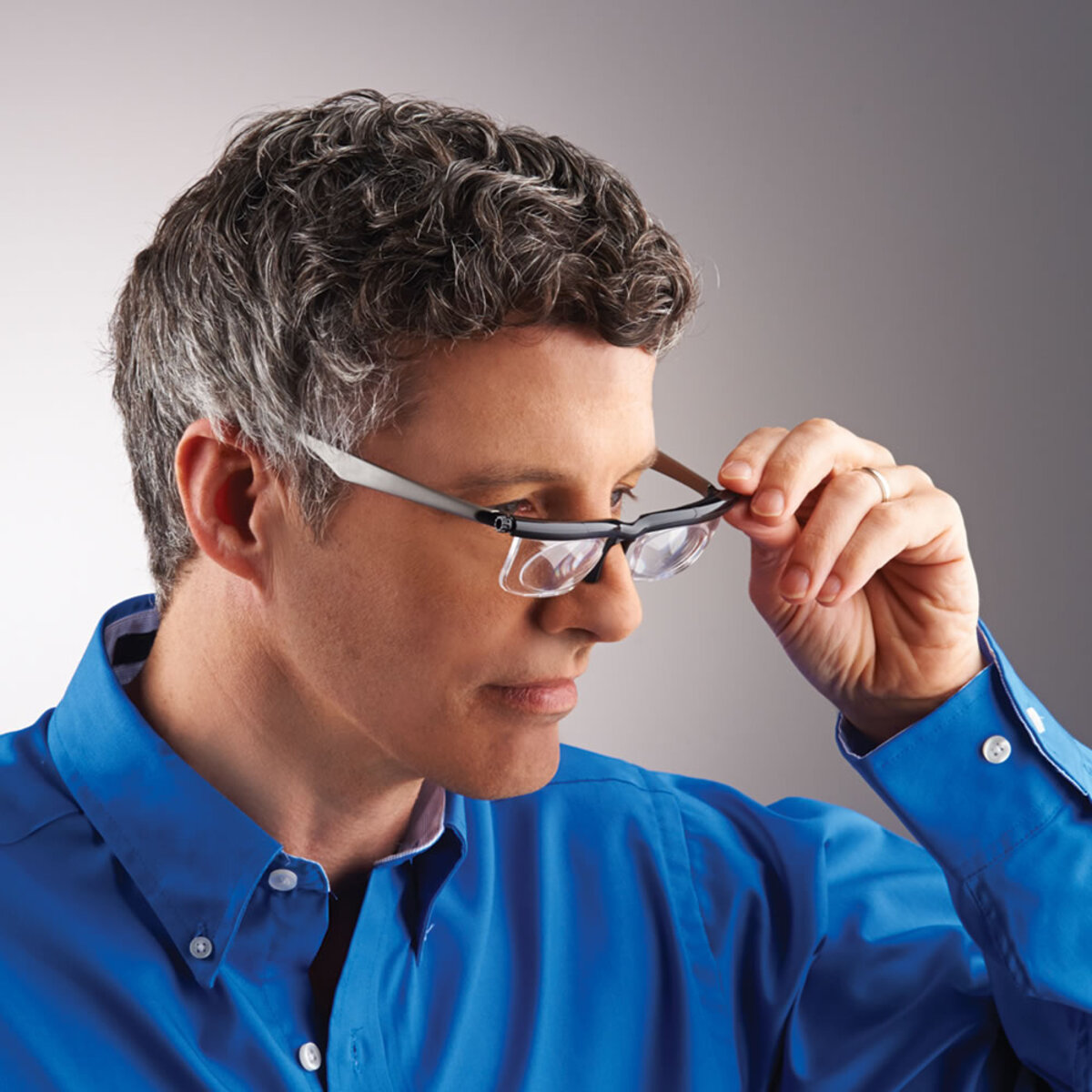Tired of blurry vision? Adjustable focus glasses could be the solution you’ve been searching for. These versatile glasses adapt to your vision needs with a simple adjustment, offering clear vision at various distances. Let’s explore the world of adjustable focus glasses and discover how they can revolutionize your eyesight.
Understanding Focus Glasses: A Visionary Solution
Focus glasses, also known as adjustable focus glasses, offer a dynamic approach to vision correction. They allow you to manually adjust the lens power, providing clear vision at different distances without needing multiple pairs of glasses. This adaptability makes them a potential game-changer for individuals with presbyopia or those who frequently switch between different visual tasks.
Why Choose Focus Glasses?
- Versatility: A single pair of focus glasses can replace multiple pairs for reading, distance vision, and everything in between.
- Cost-Effectiveness: While the initial investment may be higher, focus glasses could potentially save you money in the long run compared to buying multiple pairs of traditional glasses.
- Portability: Compact and lightweight, focus glasses are easy to carry and have on hand whenever needed.
Exploring the Types of Focus Glasses
Adjustable focus glasses utilize different mechanisms to change lens power:
- Fluid-Filled Lenses: These lenses contain a clear liquid that changes shape as your eye muscles move, adjusting the focus.
- Dial-Controlled Lenses: A small dial on the frame allows manual adjustment of the lens power.
- Electronic Auto-Focusing Lenses: These high-tech lenses use sensors and motors to automatically adjust focus based on what you’re looking at. This technology is still under development and likely to evolve further.
Potential Drawbacks of Focus Glasses
While focus glasses offer numerous advantages, it’s important to consider potential downsides:
- Adaptation Period: Your eyes may need time to adjust to the changing focus. Some individuals adapt quickly, while others may experience a longer adjustment period.
- Durability: The durability of some models, especially those with electronic components, may be a concern.
- Limitations: Focus glasses may not be suitable for everyone, particularly those with strong prescriptions or complex vision issues. They probably won’t cover the full range of correction that traditional lenses offer. Consulting an eye care professional is crucial to determine suitability.
Focus Glasses vs. Traditional Eyewear
Here’s how focus glasses compare to other vision correction options:
- Single-Vision Glasses: These glasses correct vision at a single, fixed distance, either near or far.
- Progressive Lenses (No-Line Bifocals): These lenses offer a smooth transition between near, intermediate, and far vision, but can require an adjustment period.
- Focus Glasses: Focus glasses aim to provide a dynamic range of vision correction in a single pair, potentially eliminating the need for multiple glasses.
Expert Opinions and Future Trends
Some eye care professionals, like Dr. Emily Carter, suggest that focus glasses can be a convenient option for simplifying vision correction. However, further research is needed to fully understand their long-term effects. Individual experiences may vary.
The technology behind focus glasses continues to advance. Research is ongoing in areas like more precise auto-focusing and “smart” glasses that anticipate visual needs. These innovations may enhance the functionality and convenience of focus glasses in the future.
Recommended Focus Glasses (2024)
Remember that prices and availability can change. Research and compare options before purchasing, and consult an eye care professional for personalized advice.
| Brand | Model | Price Range (Approximate) |
|---|---|---|
| Flex Focus | Flex Focus Original | $15 – $40 |
| Dial Vision | V2 Adjustable Reading Glasses | $20 – $50 |
| Clever Bear | Adjustable Focus Reading Glasses | $20 – $40 |
The Verdict on Focus Glasses
Focus glasses represent a modern approach to vision correction, offering potential convenience and adaptability. While not a universal solution, they may be ideal for many seeking a simpler way to manage their vision. Stay informed about the latest developments and consult an eye care professional for informed decision-making.
What Do Focus Glasses Do?
Focus glasses, encompassing various multifocal lens designs, provide clear vision at multiple distances, addressing age-related vision changes like presbyopia and other specific visual needs. They offer a convenient alternative to switching between multiple pairs of glasses for different tasks, such as reading, using a computer, or driving.
Types of Focus Glasses and How They Work
- Bifocals: These lenses have two distinct segments – one for distance and one for near vision – separated by a visible line.
- Trifocals: Similar to bifocals, trifocals add a third segment for intermediate vision, also with visible lines.
- Progressive Lenses (No-Line Bifocals): These lenses offer a seamless transition between distance, intermediate, and near vision, eliminating the visible lines of bifocals and trifocals.
- Adjustable Focus Glasses: These glasses employ fluid-filled lenses or sliding elements that allow manual adjustment of the lens power for different distances.
Advantages and Disadvantages of Focus Glasses
Pros:
- Convenience: One pair for all visual needs.
- Improved Quality of Life: Easier engagement in various activities.
- Personalized Vision Correction: Tailored to individual needs.
Cons:
- Adaptation Period: Progressive and adjustable lenses may require an adjustment period.
- Potential Distortion: Some users may experience slight distortion with progressive lenses.
- Cost: Generally more expensive than single-vision lenses.
Ongoing research continually advances vision correction technology. Consult an eye doctor to determine the most suitable type of focus glasses for your individual needs.
Can You Get Glasses to Help Your Eyes Focus?
Yes, glasses can significantly improve focus by correcting refractive errors, enabling clear vision at different distances. Refractive errors, like nearsightedness (myopia), farsightedness (hyperopia), astigmatism, and presbyopia, affect how light focuses on the retina, causing blurred vision.
Types of Glasses for Focus Correction
- Single-Vision Glasses: Correct vision at one specific distance (near or far).
- Bifocals: Two distinct lens areas correct near and far vision, separated by a visible line.
- Trifocals: Three lens areas correct near, intermediate, and far vision.
- Progressive Lenses: Provide a smooth transition between different focal powers without visible lines.
- Adjustable Focus Glasses: Allow manual adjustment of lens power for different distances, useful as a backup or for fluctuating vision. Brands like Dial Vision and Eyejusters offer these glasses. Check out the “I Tested Flex Focus Glasses” review for user insights. ( Replace this example link with the actual link)
Beyond Glasses: Enhancing Focus
- Vision Therapy: Exercises to strengthen eye muscles.
- Lifestyle Changes: Proper lighting and screen breaks.
- Addressing Medical Conditions: Treating underlying issues that may affect focus.
Glasses and Eye Conditions: Know the Limits
Glasses can improve vision in conditions like cataracts and macular degeneration but don’t address the underlying cause. As stated by Dr. Eduarda Mucelin, “Glasses can correct blurry vision momentarily and postpone the need for surgery, but they do not cure or treat cataracts.”
Prioritize Regular Eye Exams
Regular comprehensive eye exams are essential for detecting and managing eye conditions early, ensuring appropriate vision correction and preventative care.
If you’re considering exercising after Botox, review the guidelines here. For Botox and headache/toothache information, see this resource.
What are Smart Glasses for ADHD?
Smart glasses for ADHD are wearable technology designed to manage ADHD symptoms beyond basic vision correction. They utilize features like real-time feedback, auditory cues, and personalized interventions to improve focus and attention. Some even integrate with other devices for data analysis and progress tracking. They differ from traditional ADHD glasses, which typically use colored lenses to filter light and reduce distractions.
How Smart Glasses Can Help
Research suggests that smart glasses can reduce ADHD symptoms, especially in individuals with comorbid Autism Spectrum Disorder (ASD). The Empowered Brain system, a combination of smart glasses and educational modules, has shown promise in managing ADHD within the ASD population (Source: Optometry Times).
Potential benefits include:
- Improved focus and attention: Real-time feedback and cues help maintain concentration.
- Reduced hyperactivity and impulsivity: Personalized interventions and reminders promote self-regulation.
- Enhanced visual processing: Some smart glasses offer features similar to traditional ADHD glasses.
Considerations for Smart Glasses
- Accessibility and Cost: Smart glasses can be expensive.
- Limited Research: More studies are needed to determine long-term effectiveness.
- Individual Variability: Effectiveness may vary based on individual needs.
- Ethical Considerations: Data privacy and potential overuse are important factors.
The field of smart glasses for ADHD is still evolving. Consult a healthcare professional for personalized advice.
- Divided Lunch Containers Revolutionize Your Meal Prep Strategy - February 9, 2026
- Divided Food Storage Containers Transform Meal Prep and Portion Control - February 8, 2026
- Divided Food Containers Are Meal Preps Secret Weapon - February 7, 2026










